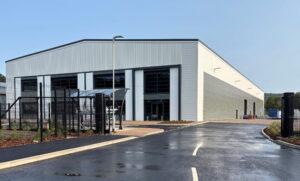Report published into Chepstow traffic and travel

Over the last two years studies have been undertaken into how traffic and travel movements might be improved in and around Chepstow and the surrounding area. Earlier this year the second stage report (produced using the WelTAG or WebTAG staged methodology specified by both UK and Welsh Governments for the development and appraisal of transport proposals) was presented to the local authorities and other public bodies involved in the commissioning of the report.
The report is now being published and is available by following this link:
A summary of the study is provided along with the main report by following the link. There are further documents that support the study findings that can be made available upon request to members of the public wishing to see the detail within the supporting documents that lies behind the report and its findings.
The study has been commissioned jointly by local authorities both sides of the border along with other interested public bodies being included in the commission and development of the study.
Within local government this has involved Forest of Dean District Council, Gloucestershire County Council, South Gloucestershire County Council and Monmouthshire County Council. Amongst other public bodies Welsh Government and Highways England have also been included in the report development.
The study has been undertaken by ARUP consultancy on behalf of the local authorities and public bodies.
The Chepstow Transport Study highlights several problems to be addressed surrounding public transport and active travel but possibly the highest profile problem lies largely in traffic congestion on the main public highways converging at Chepstow. The impact is felt by local residents in terms of routine inconvenience and more seriously air pollution (The A48 on Hardwick Hill, Chepstow is an air quality Management zone) but there is also the impact upon motorists travelling through the area as traffic jams are frequent and prolonged at various times during the day.
The study provides and collates the background information and data and then proposes options for further more detailed analysis. This process reflects the WelTAG and WebTAG requirements that in turn bring a structured and robust method to analyse and assess problems, options and ultimately develop solutions.
The study recommends that the further work now follows three main packages. They are described in detail in the report but in summary these are:
- Active Travel (walking and cycling) Improvements – to investigate in detail transport management including vehicle access (including part-time pedestrianisation options), car parking, walking and cycling improvements including conversations with stakeholders about what improvements bring the greatest benefits. It will look at routes in communities on both sides of the border, provide costed priorities and provide potential funding opportunities.
- Public Transport (bus and rail) – Chepstow Transport Hub and Connectivity Improvements – will develop options to create a public transport hub within Chepstow. This will involve the feasibility of a better interchange with enhanced links to public bus services and how this integrates with car users (parking, electric vehicle charging etc.) and active travel routes to offer a sustainable and practical alternative to car use.
- Chepstow By-Pass – Takes the high level option outlined in the stage 2 report into a more detailed pre-design study including traffic assessments, value for money studies, environmental studies, engagement with statutory consultees, preliminary construction programme.
Package 1 (active travel) is to be commissioned in the coming weeks, funded through Welsh Government Active Travel available to Monmouthshire County Council plus potential contributions from Gloucestershire CC and Forest of Dean DC (subject to bids and councils’ agreement).
Package 2 (Chepstow Transport Hub) is funded by Welsh Government Local Transport Fund and the study has recently been commissioned to be undertaken in this year.
Package 3 (Chepstow By- Pass) and how it might progress to the next stage is more complex and is subject to further discussions about how the scheme might be funded, which authority might take the lead etc.
Monmouthshire’s cabinet member with responsibility for strategic integrated transport, Councillor Jane Pratt said: “It’s heartening that all of the local authorities, government departments and other public bodies have worked positively towards getting to this stage and that some aspects of the study are set to progress. As a cross border project it has proven successful so far, although I acknowledge the challenges regarding transforming proposals into reality.”





